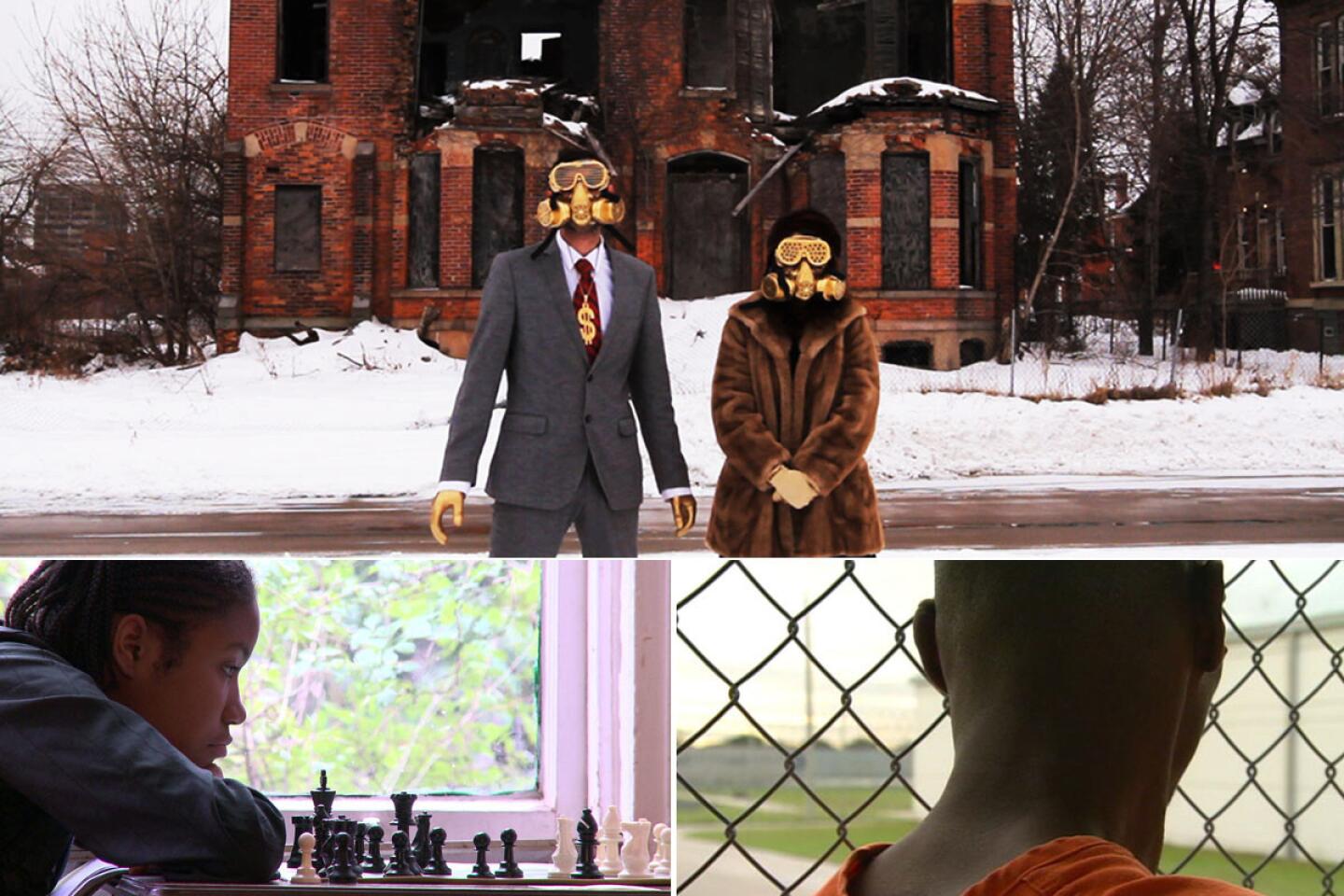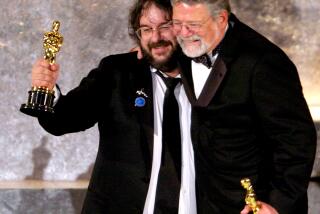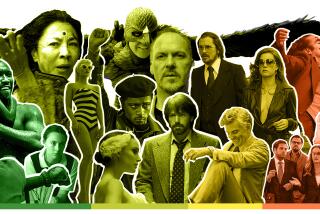Best movies of 2012: ‘Pi,’ ‘Master,’ ‘Moonrise Kingdom’ make cut
It’s as if this year filmmakers remembered why God made movies. In a world of nonstop data where most of the static is gossip in 140 soul-destroying words or less, cinema has had a transcendent 12 months — a visual renaissance that has burned past convention.
The creative surge has not led to a perfect world. At times the performances stumbled, the stories struggled. But what we saw on screen was mind-blowingly inventive — the stuff of imaginations unbound.
Though visually evocative films are always a part of the landscape, the artistic leap of 2012 is particularly significant. The source of film’s power as a distinctive medium has always been its ability to take us to another world, for reality to dissolve in the darkness while the images overtake us. When this happens, the experience is immersive. Watching the ethereal 3-D of Ang Lee’s “Life of Pi” I felt as if I was floating alongside as the shipwrecked boy wrestled with a tiger, instinct and faith. Fear replaced grace in the deadly churn of director Juan Antonio Bayona’s tsunami in “The Impossible,” its undertow so powerful it left me gasping.
LIST: Best movies of 2012 | Betsy Sharkey
As the power and complexity of the illusions increase, so too the allusive impact. Filmmaker Paul Thomas Anderson literally and figuratively parted the waters in “The Master,” a ship’s wake a constant reminder of the flotsam of humanity. Joe Wright used a living, breathing theater for “Anna Karenina” – the action unfolding on its stage, side stories settling into the box seats, intrigue on its catwalks, betrayals in the prop room. The place itself became a stunning stand-in for the artifice of imperial Russian society’s masquerade.
There was provocation as well in understatement. The meticulously crafted minimalism of “Moonrise Kingdom” carried director Wes Anderson’s strongest artistic imprint yet. From the perfect row of pup tents pitched at summer camp to the church production of Noah’s Ark, the details, even small ones, merited a moment.
Authenticity, as opposed to the now bastardized notion of reality, came into its own with unexpected force. Here life was stripped to its essential, naturalistic core. Ambient sounds provided the chorus for existential portraits in films that continued in the tradition of Kelly Reichardt’s “Meek’s Cutoff” of a year ago. It felt like a rebirth of the terrain long-tilled by Hungarian great, Béla Tarr. In “The Turin Horse” this year, which he has said will be his final film, the pain of the poor, the struggle of each day, was eloquently expressed with virtually no words.
Best of 2012: Movies | TV | Pop music | Jazz | Video Games | Art | Theater | Dance | Classical music
Now a new generation of filmmakers is experimenting with the sensory possibilities. Andrea Arnold’s “Wuthering Heights” let wind and the moors create their own state of grace. The Georgian landscape was as isolated, its beauty as harshly battered by circumstance, as the couple in Julie Loktev’s “The Loneliest Planet.” There is a kind of purity to this vein of filmmaking that is exceedingly moving. Even “Skyfall,” the latest edition in the James Bond franchise, was more restrained, and it was more emotionally raw for it.
Sometimes films screamed for attention with their sheer size and how well they wore it. Christopher Nolan’s “The Dark Knight Rises” was glorious in its scope, frames dense with detail, and Peter Jackson’s 48 frames-per-second “The Hobbit: An Unexpected Journey” was nearly blinding in its clarity, which added a sense of wonder to Middle-earth. Tom Hooper’s “Les Misérables” pulled Victor Hugo’s masterpiece out of the mud and muck with incredible theatricality.
There was surrealist progress as well. Benh Zeitlin’s fearless magical realism blew up a bayou and broke ancient aurochs free in the cacophony of “Beasts of the Southern Wild.” Leos Carax moved beyond reality entirely in “Holy Motors,” where the play truly became the thing, life a series of movie scenarios to be acted out, a meta examination on the medium’s growing obsolescence.
But where Carax sees decline, I see reinvention — film’s creative roots reimagined, the future reshaped.
More to Read
Only good movies
Get the Indie Focus newsletter, Mark Olsen's weekly guide to the world of cinema.
You may occasionally receive promotional content from the Los Angeles Times.








